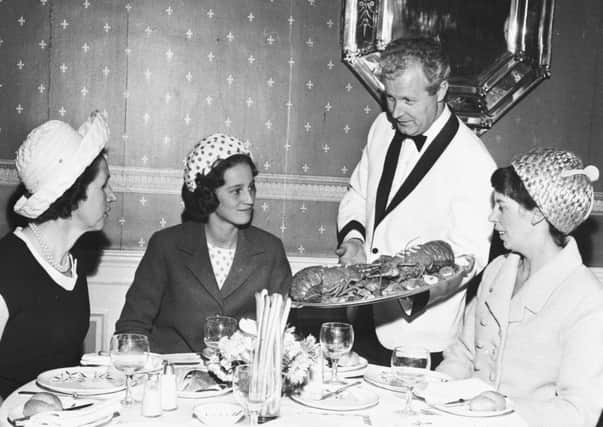Why Brexit could see the demise of tipping in restaurants – Stephen Jardine


It sounds like an attractive job. Nice surroundings, meeting different people every day and you get fed as well. Compared to other professions, being a waiter or waitress has all the hallmarks of a decent career choice yet that just isn’t the case.
Perhaps our historic class structure leaves a distaste for anything seen as servile or maybe it is low basic pay and the lack of career development that ensures hospitality service is only ever seen as a temporary option on the journey to doing something else.
Advertisement
Hide AdAdvertisement
Hide AdThink of who served you on your last visit to a restaurant? In Scotland, more often than not, it will be a student making ends meet or someone from overseas just passing through. Working as a waiter or waitress is seen as a stop gap, not a career. That needs to change.
A recent report for the British Hospitality Association revealed the hotel and restaurant sector will need to recruit an additional 60,000 UK workers every year just to fill the gaps created by Brexit and the end of free movement.
Achieving that will require a wholesale rebranding of the job experience to shake off the perception that it subservient, menial work. But more than attitudes need to alter.
Austria’s pay league table
In Vienna just before Christmas, I noticed just about every waiter or waitress was Austrian and middle aged. The reason for that is very simple.
In a league table of pay in Austria, waiting staff are sandwiched between graphic designers and university lecturers. That won’t be the case here.
In the UK service sector, pay is shrouded in myth and confusion, thanks our top-up tipping culture. It creates an uneven playing field with different employers using different distribution systems. From bar staff to kitchen porters, it also leads to problems over who gets a share and what the proportion should be.
That makes it a subject few are prepared to talk about openly but one leading Edinburgh restaurateur told me “in an ideal world, tips just would not exist”.
“It just complicates the picture. Hospitality needs to become a profession where the cost and value of dining in a restaurant environment with real food and engaging, emotionally intelligent service has to be valued. Price needs to reflect this,” they said. Just as mass production in this country has produced food that is too cheap to be sustainable or good for us, we’ve ended up in a place where service is measured by speed and not quality.
Advertisement
Hide AdAdvertisement
Hide AdWith VAT at 20 per cent, margins are already perilously tight in the restaurant business but for the long-term future of the industry, waiting staff need to be paid properly to make the job an attractive career for youngsters to enter. Some people get this. Despite operating in the tipping capital of the world, New York’s top restauteur Danny Meyer has scrapped tips in all his establishments and says customers are happy to pay more for dishes if they know staff are being properly rewarded and there is no expectation to leave “a little extra”.
Also, some of the top London operators are now offering £30,000 plus starting salaries for senior waiters and waitresses with additional performance rewards. It is high time we changed the way we think about restaurant service in this country and Brexit is the perfect place to start.